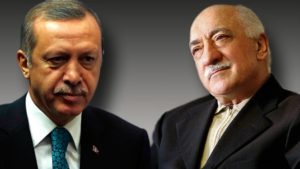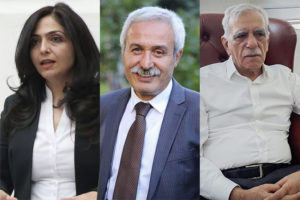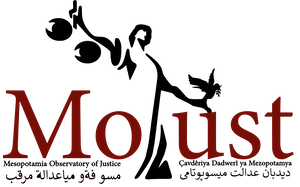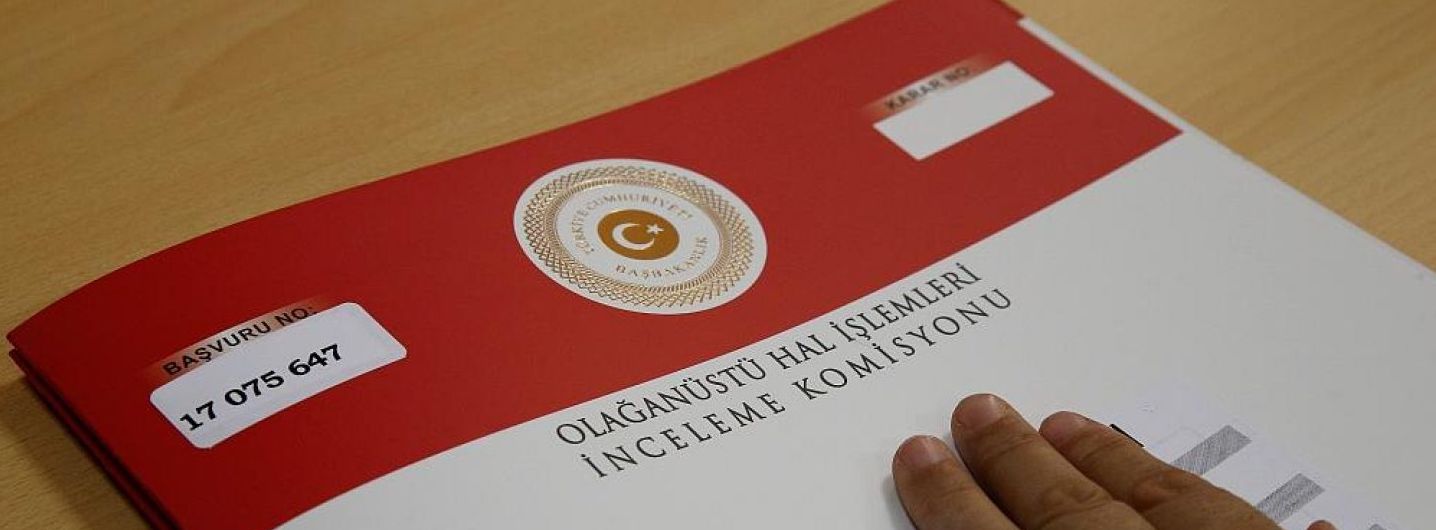The COVID-19 pandemic has fundamentally changed our lives and enjoyment of rights. The now-familiar curfews and other restrictions are, in principle, permissible under human rights law (see here and here). Nonetheless, there are many unresolved questions (see here and here) and, for some, the pandemic-emergency is an opportunity to weaken democratic institutions and set permanent limits on freedom (see here and here). The legacy of state of emergency rule in Turkey provides a germane lesson on the threat to democratic norms and human rights during, and beyond, times of crisis.
The 15 July Attempted Coup and Emergency Rule
On 15 July 2016, an attempted coup d’état in Turkey was put down within hours as crowds and security forces confronted the coup forces. With the putsch defeated, the Government’s response was as expected: the declaration of a state of emergency (Olağanüstü Hal) on 21 July and derogations from human rights treaties (see here). Then came the unexpected. The Government’s subsequent pursuit of allies/followers of Fethullah Gülen, an exiled preacher, once ally of President Erdoğan (see here) and alleged mastermind of the putsch, saw a massive purge of state institutions and civil society as part of the ‘Fight against the Fethullah Gülen Terrorist Organisation (FETÖ)’.
The purge was breathtaking in ambition and execution. Members of the armed forces, the police, the judiciary, educational institutions, trade unions and media groups, among others, were subjected to mass detentions, immediate dismissals and closures. In total, 78,000 people were arrested, more than 150,000 civil servants were dismissed, including almost one third of the judiciary (4,308 judges and prosecutors), and 2,761 organisations were dissolved (see here). Many of these actions relied on a new legal concept of “having a connection or contact with”, removing any distinction between coup participation and legitimate peaceful activity, and emergency decrees barred judicial review of the constitutionality of emergency measures.

Human rights representatives have explicitly recognised the gravity of the events of July 2016 and the rights and duties of the Turkish Government in guaranteeing constitutional and public order. At the same time, they have consistently warned of the threat posed to human rights, democracy and the rule of law by its emergency-regime. Times of emergency present considerable scope for abuse, whether through recourse to arbitrary measures or the use of powers beyond the extent strictly required or to matters unconnected to the emergency. In a worst-case scenario, there is the risk a State might “take advantage of the perpetuation of the “state of emergency” to set up a repressive “legislative” arsenal designed to remove the prospect of a return to normality” (see here).
For this very reason, the principle of proportionality is common to human rights treaty provisions on emergencies: any limitations placed on rights by emergency measures must be “strictly required by the exigencies of the situation” (see here and here). The Turkish Government’s use of emergency decrees to regulate horseracing and the use of winter tires (see here, p 12) obviously failed to meet this expectation, and a “repressive legislative arsenal” was quickly realised through a series of emergency decrees. The putsch and subsequent state of emergency also provided cover for a radical re-recentralisation of power. Holding a referendum on the transition from a parliamentary to a presidential system during the state of emergency, in April 2017, was an audacious move. Council of Europe legal experts, while admitting that there is no rule of international law to prohibit a referendum during emergency, denounced the abuse of emergency powers to restrict media freedom during the referendum (see here) and warned:
“[T]he proposed constitutional amendments would introduce in Turkey a presidential regime which lacks the necessary checks and balances required to safeguard against becoming an authoritarian one”
It was never in question that President Erdoğan would turn his gaze to the Kurdish region. The Government used emergency powers to suspend local democracy through the seizure of Kurdish municipalities, arrests and the replacement of elected Kurdish mayors with government-appointed trustees (see here, here and here). Suspensions of national mandates flowed from an April 2016 constitutional amendment on the withdrawal of parliamentary immunity criticised by Council of Europe experts as an “ad hominem” measure and “a misuse of the constitutional amendment procedure” (see here, paras 80-82). The Government lifted the parliamentary immunity of 55 of 59 of the Peoples’ Democratic Party (HDP) MPs and removed, by means of arbitrary and prolonged detention, Kurdish MPs and candidates during the campaigns for the (successful) constitutional referendum and the June 2018 presidential election (see here).

The Government also deepened its campaign against free expression and broadcasting. By the end of 2016, 140 media outlets (including newspapers, television channels, news agencies, radio stations) and 29 publishing houses had been dissolved by emergency decree. Inevitably, it targeted Kurdish media. The Kurdish daily newspapers Özgür Gündem and Azadiya Welat were closed by emergency decree in 2016, along with 14 media organisations, and employees were arrested, with the effect of “effectively wiping out all media with a [Kurdish] following” (see here, p 4). Kurdish television channels were removed from the state satellite list and 23 Kurdish-language television channels and radio stations, including children’s channel Zarok TV, were closed on the basis of a generalised “threat to national security”. The use of emergency decrees to silence pro-Kurdish and Kurdish-language media was a patent abuse of power.
In respect of the ‘FETÖ’ purge, and the intensified campaigns against free media and Kurdish expression and representation, human rights and democratic norms were victim rather than constraint on the Government.
The prior legacy of state of emergency rule
Any discussion on emergency rule in Turkey must take consideration of the local history of coups d’état and states of exception. The Republic of Turkey experienced coups in 1961, 1970, 1980 and 1997 (the ‘postmodern coup’) and has been under states of exception, either martial law or state of emergency, for the majority of its history. The current Constitution was itself drafted and adopted, in 1982, following the coup of 12 September 1980 and was a radical departure from the 1961 Constitution. In 1983 Bülent Tanör, then former Constitutional Law Professor at Istanbul University, lost his academic job and left Turkey within months of writing the following critique of the new constitutional order:
“The constitution is marked by its excess of zeal in defending the state against society, on the one hand, and the state and/or society against the individual on the other hand. It permits an excessive curtailment of freedom, by means of the concomitant powers of intervention which it confers upon the legislator, powers which accumulate to the point that they constitute a water-tight lid liable to stifle every aspiration to liberty” (see here, p 81)
A further state of emergency, in response to conflict between Turkish forces and the PKK, lasted from 1987 until 2002. In fact, Turkey first recognised the right of individual petition under the European Convention of Human Rights (ECHR) in January 1987 (to the former Commission) during state of emergency rule and a derogation under Article 15 remained in place from August 1990 until November 2002. During this time, the ECHR bodies received unprecedented numbers of individual complaints of serious violations (see here). Intervening reforms with one eye to European Union accession had only short-term effects. In sum, the constitutional and legal frameworks were in no way ‘normalised’ prior to July 2016.
The legacy of emergency rule
The state of emergency lasted almost exactly two years, ending on 18 July 2018, meaning sufficient time has passed to allow initial observations on ‘legacy’ and the difficulties in securing human rights and accountability. The assessment begins with a review of the evidence of permanence before turning to structural legacies. Focusing on law and democratic norms in this way brings an obvious risk of side-lining the personal. We might look, for instance, to testimonies among the 150,000 people arrested, to the spouses of suspects who had their own passports revoked, or to those compelled to leave and subjected to INTERPOL Red Notices. The emergency caused lasting and unquantifiable personal harms.
 (a) Evidence of permanence
(a) Evidence of permanence
A review of the present state of Turkish law is essential given the broad scope of emergency powers adopted between 2016 and 2018. The core question arises: to what extent has Turkish law (once again) been transfused by emergency? The Council of Ministers adopted 36 emergency decrees which set out a range of special powers and measures. They provided for 30 days’ detention, 14 days’ incommunicado detention, and the observation and recording of detainees’ meetings with lawyers. In January 2017, the Government relaxed some measures in response to Council of Europe pressure: reducing the maximum detention period to 7 days (with a possible 7-day extension) and incommunicado detention to 24 hours.
Some of the thousands of legal amendments, particularly to the Code of Criminal Procedure (CCP), were reset at the end of the emergency. Many others have been translated into law on a permanent basis, including the powers of courts to prohibit a lawyer from acting for a particular client for up to two years (Article 151 CCP) and to hear defendants and pronounce sentences without the presence of a lawyer (Articles 188 and 216 CCP). Prosecutors also retain the power to challenge court orders releasing detainees (Article 104 CCP).
A de facto emergency came with the adoption of Law No. 7145 on the Amendment of Some Laws and Emergency Decrees. Law No. 7145 took effect on 21 July 2018 and will remain in force until July 2021. It essentially extended the procedures on dismissals of civil servants and the cancellation of passports. It also granted extensive powers to Governors over freedom of movement, including the power to order curfews and to restrict and disperse demonstrations. In the view of the Turkish Human Rights Association (see here), through Law No. 7145 the Government has “disregarded” the social contract and taken further anti-democratic measures in the limitless pursuit of power. In the process, “a fraud against the Constitution has been perpetrated”.
(b) Structural legacies
Thematic human rights reporting on Turkey since July 2016 presents a bleak picture of structural practices affecting the full range of rights. United Nations experts have reported a “grave crisis” regarding freedom of expression (see here), of widespread torture in the aftermath of the putsch (see here) and a subsequent “climate of impunity” (see here). In March 2018, the UN High Commissioner for Human Rights detailed extensive violations, including in the Kurdish region, and warned of the “long-lasting implications on the institutional and socio-economic fabric of Turkey” (see here). The Council of Europe Commissioner for Human Rights, Dunja Mijatović, has given the most recent assessment(see here). This section will draw, in particular, on the Commissioner’s findings across three issues: the administration of justice, domestic remedies, and human rights defenders and civil society.

(i) The administration of justice
Reduced judicial scrutiny of executive action is a well-recognised and very real prospect during states of emergency. Along with stable and active democratic institutions, an independent judiciary is a crucial guarantor of rights and accountability when the normal parliamentary oversight and legal constraints on executive action are absent. In the Turkish case, President Erdoğan used the emergency to erode judicial independence and enforce political control, with effects lasting well beyond the formal end to emergency rule. The continuing system for dismissal of judges, under Law No. 7145, lies at the heart of the problem. The Commissioner summarises how this effective suspension of security of tenure, the politicisation of the Council of Judges and Prosecutors, and problems with the appointment and training of 10,000 new judges have culminated in “an existential threat to the rule of law”. The consequences for the criminal justice system have been plain to see, with increased “partiality of judges to political interests” in an environment in which prosecutions follow President Erdoğan’s public speeches:
“Disregard within the judiciary of the most basic principles of law necessary to have a system of rule of law, such as presumption of innocence, non-retroactivity of offences, not being judged for the same facts twice, as well as legal certainty and foreseeability of criminal acts, has reached such a level that it has become virtually impossible to assess objectively and in good faith whether a legitimate act of dissent or criticism of political authority will be re-interpreted as criminal activity by Turkish prosecutors and courts.”
The ‘Criminal Judgeships of Peace’ have contributed heavily to this picture. The criminal judgeships were introduced in June 2014 and were supposed to embed human rights expertise within the criminal justice system. In reality, they have routinely denied the right to freedom of expression and detainees’ rights (see here). They have ignored legal precedents (including Constitutional Court case-law), systematically failed to check the abuse of power and prevent arbitrariness (see here and here), and operate within a closed system of horizontal appeals desperately in need of overhaul (see here). In the view of the Commissioner, their decisions on detentions and internet blocking are “characterised by the absence of any individualised arguments and reasoning that takes account of [ECHR] standards”, presenting only “stereotypical formulas”. The criminal judgeships serve the purpose of reducing rights and access to justice within a judicial system that has travelled a long way, and fast, since 2016.
(ii) Human rights and domestic remedies
Given the recognised lack of judicial independence and the fundamental problems with the criminal judgeships, the prospect of justice for dismissed civil servants remains unsurprisingly low. It is also controversial as the European Court refuses to entertain complaints without clear evidence domestic remedies are ineffective. The European Court dismissed the claims of two dismissed judges, in November 2016 and March 2017 respectively (see here and here), for failure to submit applications to the administrative courts and the Turkish Constitutional Court (TCC). The Court also emphasised that any fear or belief among applicants that the TCC lacked independence and impartiality was immaterial: the duty to seek local redress remains.
The introduction of a right of petition for human rights claims before the TCC in May 2010 (Article 148 Constitution) was heralded as a sign of improved political respect for rights and for leading to reduced numbers of cases appearing at Strasbourg (see here, p 58). With thousands of emergency-related claims being received at the TCC and at Strasbourg, the Council of Europe Secretary-General, Thorbjørn Jagland, urged the Turkish Government to create a domestic mechanism to review complaints regarding dismissals and closures and relieve the pressure.
The ‘Inquiry Commission on the State of Emergency Measures’ was created (by emergency decree) in January 2017 and began considering domestic applications in December that year. In June 2017, in the case of a dismissed teacher (see here), the European Court ruled that claimants must apply to the Inquiry Commission before lodging claims at Strasbourg, even though the Inquiry Commission was created after the date of their ECHR applications. By August, the TCC had directed claimants in some 70,000 cases to the Inquiry Commission and/or the administrative courts, and the European Court had directed almost 30,000 applications back to the Inquiry Commission (see here, p 9).
Legal experts and NGOs have identified various problems with the formation and working methods of the Inquiry Commission and, therefore, with the Court’s position (see here and here). As of May 2019, the Inquiry Commission had received 126,600 applications and reviewed 70,406 claims, rejecting 65,156 claims and ordering reinstatement in just 5,250 cases. The European Union Commission commented:
“The rate of processing of applications raises concerns at whether each case is being examined individually. Since there are no hearings, there is a general lack of procedural guarantees for applicants and decisions are taken on the basis of the written files related to the original dismissal, all of which calls into question the extent to which the Inquiry Commission is an effective judicial remedy” (see here, p 4)
In a relatively brief review, the Commissioner highlights the Inquiry Commission’s treatment of lawful activities such as support for NGOs or use of the Bylock messaging app as incriminating evidence. Combined with the low success rate, there is strong evidence the Inquiry Commission merely replicates the original problems of arbitrariness and redistribution of the burden of proof.
Separate issue arises with the automatic effects of dismissals, forms of ‘civic death’ (see here) – life-long bans on public sector work, bans on standing for election, cancellations of passports and evictions from public housing. In the Commissioner’s opinion, the Inquiry Commission cannot provide an effective remedy for these criminal sanctions, which “should only be possible as a result of a judicial decision following criminal proceedings” and which constitute a priori violations. This is a crucial intervention. The Inquiry Commission is supposed to cure some of the harshest effects of the emergency. In practice, it recalls the problems with a 2004 Turkish compensation scheme (see here) and continues to deny the protection and vindication of rights.


The European Court’s relationship with the TCC also demands further scrutiny. Specifically, its decision to grant the TCC special dispensation in light of the complexity and numbers of emergency-related domestic claims. In January 2017, then European Court President Guido Raimondi expressed fear the court might be “submerged” by emergency-cases and stated: “it is good to let the Turkish authorities do their job” (see here). In two judgments on 18 March 2018 (see here and here), the Court obliged by ruling that the TCC’s 14 and 16-month delays in reviewing the lawfulness of detention, normally a breach of Article 5 (4) ECHR, did not constitute violations given the exceptional situation. The Court was only willing to acknowledge that the cases “raised doubts” as to the TCC’s effectiveness. Dilek Kurban, legal expert at the Hertie School of Governance, promptly denounced the court’s policy of selectivity and “continuing preoccupation with its docket crisis despite the rapid consolidation of authoritarian rule in Turkey” (see here).
The Court’s patience eventually ran out in December 2019. Giving judgment on the prolonged detention of Osman Kavala (see here), it ruled that a 17-month delay by the TCC violated Article 5 (4) ECHR. It also closed the door on the previous exemption: “the excessive workload of the Constitutional Court cannot be used as perpetual justification for excessively long procedures”. The Court has issued a series of strong judgments on detentions, finding violations due to lack of reasonable suspicion justifying detentions of journalists (here and here) and the unlawful detention of judges accused of ‘FETÖ’ membership (see here and here). Furthermore, it issued landmark findings that Turkey had placed restrictions on rights by detaining (former HDP co-chair) Selahattin Demirtaş (see here) and Osman Kavala (see here).Having finally recognised a failure of the TCC to protect rights in the case of Osman Kavala, the question is whether, and in what manner, the European Court might reach similar conclusions in non-detention cases.
The Commissioner’s review of the TCC provides some tentative observations. She notes in the first instance that its caseload is unlikely to reduce significantly in the near future, “making unreasonable delays inevitable in the absence of far-reaching general measures”. She identifies two further and compelling problems: (1) the refusal of lower courts to comply with TCC case-law, and; (2) the TCC’s own departure from rights-compliant decisions and the 8-8 split vote in the Academics for Peace case (see here). The Commissioner refrained from issuing final determinations on the TCC, given the Court’s primacy on assessing the effectiveness of remedies in individual cases, but went close: the evidence suggests the TCC “may not be immune from considerations that are strategic or conjunctural, rather than purely legal, in nature” and its status as an effective remedy is “jeopardised”.
(iii) Human rights defenders and civil society
Turkey has a longstanding record of targeting critics and human rights defenders, especially Kurdish voices. Before the putsch, President Erdoğan spoke of the need for NGOs investigating security force abuses in the Kurdish region to be “countered”. The judicial control outlined above explains the series of new outrages against the concept of an open society. Emboldened during the emergency, President Erdoğan increased his own power of intervention regarding associations and targeted judicial actions were ramped-up. As early as July 2017, UN experts condemned a “witch-hunt” against human rights defenders (see here).
Changes to the legal and regulatory framework during the emergency have taken Turkish law further from compliance with the Venice Commission / OSCE Guidelines on Freedom of Association (see here). Presidential decrees amended the Law on Associations and introduced further discretion in the interpretation of ‘public activity’. Since 2018, members of associations have to register with the Ministry of the Interior, and inspections and audits have been weaponised against NGOs. For NGOs and associations dissolved by emergency decree, there is still no sense of how the Inquiry Commission could, if so determined, remedy the harm caused. Furthermore, members of such organisations were subsequently targeted for dismissal from the civil service, a further denial of basic legal principle. For the Commissioner, this “amounts to a retroactive punishment based on a future requalification of an NGO as illegal”.Summarising on a pattern of intimidation, criminalisation, bias and hostility towards human rights defenders, the Commissioner comments:
“Criminal investigations, proceedings, detentions, and sentences faced by Turkish human rights defenders are too numerous and systematic to be considered individual occurrences and point to a widespread pattern of misusing the judicial process to silence human rights defenders and discourage civil society activism […]. It is clear for the Commissioner that prosecutors and judges ignore or deliberately disregard international standards in this context, notably by re-interpreting legitimate and lawful activities human rights defenders ordinarily undertake in a democratic society as evidence of criminal activity, often with the encouragement of public officials at the highest level to that effect.”
Lawyers have suffered the same treatment, including closures of associations by emergency decree and dismissals with automatic bars on practising law. Abusive detentions, interferences with bar associations, emergency restrictions on rights of the defence, lawyer-client privilege and on lawyers’ professional activities, and mass terrorism trials have become commonplace (see here). The Commissioner confirms the same pattern of reprisals and a problem of guilt by association for lawyers representing domestic and ECHR claimants. In a signature phrase from the Commissioner’s report, the effect has been “a clear chilling effect for the entire profession”.
Conclusion
Discussing the ‘legacy’ of state of emergency rule in Turkey is difficult, vulnerable to the accusation of naivety even, given the evidence of an ongoing de facto emergency-state and entrenched power structures. The prior legacy of emergency and long record of disregard for human rights also blur the picture and impede efforts to assess the distinctive normative and structural effects of the post-putsch campaign. What is clear, however, is that public power and agency have been reanimated, re-indoctrinated, since July 2016. Efforts to secure human rights and accountability have come up against an impenetrable programme of constitutional, legislative and administrative measures. Emergency powers were used beyond the extent strictly required, against large sections of society, and against democratic institutions and principles, foremost among them judicial independence. Turkey is a live example of a near worst-case scenario state of emergency. At the least, we see the risks posed by emergency rule where governments are already running the clock on liberal democracy. At worst, Turkey presents a roadmap for emergency power-grabs.
An equalling troubling aspect is the failure of Europe’s human rights court in the face of authoritarianism and intentional disregard for human rights. The lesson here is that traditional expectations of human rights courts do not always stand up in cases of systematic denial of human rights. The European Court’s concern with avoiding an adverse judgment and being “submerged” with Turkish emergency cases saw a strategy of sending claimants home for administrative review. In doing so, it generated a legal vacuum for thousands. Human rights and democratic norms were victim rather than constraint during state of emergency rule and the European Court presented surprisingly little resistance. Rather, the last two Commissioners for Human Rights took the lead in identifying laws and practices contrary to ECHR standards while the Council of Europe’s political bodies focused on high-level engagement (see hereand here).
The same challenges of potentially high caseloads and of entrenched emergency sit on the horizon of the COVID-19 pandemic, while the spreading “democratic façade” (see here) will undoubtedly present its own challenges to the European Court. The Turkish case study, while qualitatively different in terms of the origins of emergency rule, exposes fundamental weaknesses in the Court’s approach to the protection of human rights during and beyond times of crisis.
DARREN DINSMORE, Mojust Co-Director


